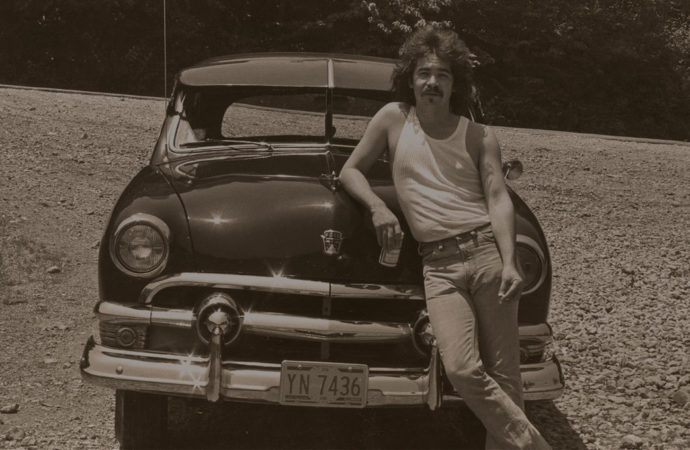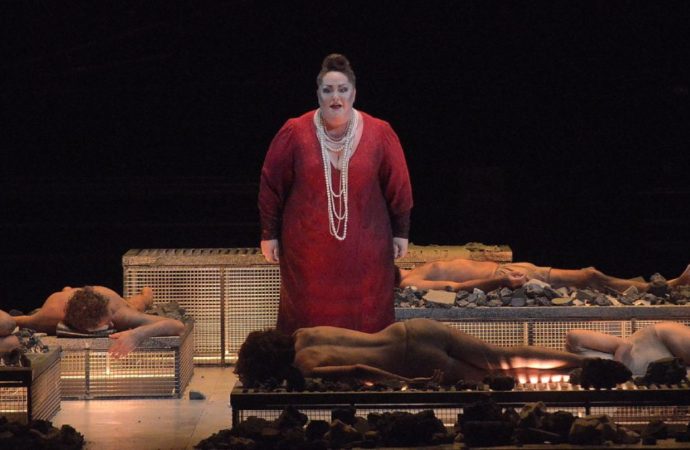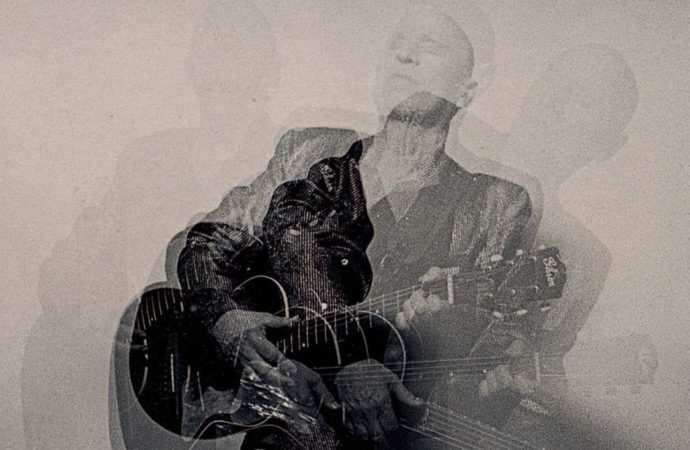John Prine was working as a mailman in Chicago in the late 1960s when he saw Bob Dylan and Johnny Cash on TV singing together had just started writing his first songs while delivering the mail and realized that his work fit exactly between the two, and was delighted that there was no better place to be. He never made it big, nor sold millions of records, but Johnny Cash would later say that when he needed to write a song he listened to Prine and Bob Dylan would extol his songs as pure Proustian existentialism, Midwestern mind trips to the nth degree. Maybe some would have preferred to have a number one but I don’t think the charming Prine would have traded it for anything in the world…
John Prine may have been no innovator, his songs stemming from the folk and country tradition, with light touches of early rock & roll and rhythm & blues, but he was a master at writing memorable songs, a craftsman with a wonderful sense of humor, empathetic, tough and imaginative, a born storyteller, with a good sense of melody and a fondness for his characters that came from something deeply humanistic. The 60s hardly affected him, making him one of the fathers of what was later called Americana, a genre of which his debut album is one of the essential works.
But for someone as physically unattractive as Prine, and with such a limited voice, to get a record deal, he had to make up for it with exceptional talent and enormous charisma when presenting his songs. He was never short of celebrity fans, the first to sing his praises was the famous film critic Roger Ebert, but it was his meeting with Kris Kristofferson that turned his fortunes around. After seeing him in a Chicago club, the author of “Me And Bobby McGuee” would say: It was like bumping into Dylan when he first burst onto the Village scene (although he would later add, with much derision, John Prine is so good we should break his hands).
Overnight, John Prine went from playing in clubs to being in the studio, paid for by Atlantic, with Elvis Presley musicians like Reggie Young and Bobby Emmons. The good thing is that after a couple of years writing songs, Prine arrived with a portfolio full of great songs. That eponymous first album is almost a greatest hits (it should have been), with many of the most acclaimed songs of his career present, including what I consider the two best, “Hello In There” and “Angel From Montgomery”.
The former was brimming with humanism, paying attention to the people to whom the fewest songs have been dedicated, the elderly. Its refrain went like this: You know old trees get stronger and old rivers get wilder every day, but old people just get lonelier, which further reinforced the song’s final message, So if you’re walking down the street sometime and you see some old, hollow eyes. Please don’t just walk by and stare at them like you don’t care, say: “Hello there, hello”.
“Angel From Montgomery” went on to become the most covered song of his career, once again expressing tenderness for its protagonist, a middle-aged woman who wants to leave everything behind, her house, her marriage… but who manages to do so without sounding obvious or maudlin. In less than three years it had already been recorded by people such as Carly Simon, Bonnie Koloc, John Denver and Bonnie Raitt, which would become her most representative song.
But that debut also included other gems like “Sam Stone”, a song about a drug-addicted Vietnam veteran that contains one of his best-remembered lines: There’s a hole in daddy’s arm where all the money goes, although it also has another interesting one like So I guess Jesus died in vain, which the religious Johnny Cash didn’t dare sing in the version he did years later, even though Prine thought it was the heart of the song. Also appearing there was “You’re Flag Decal Won’t Get You Into Heaven Anymore”, a diatribe against those patriots who put a little flag on their car while the planes kept arriving packed with corpses from Vietnam: But your little flag won’t get you into heaven. They’re already crowded because of your dirty little war, plus the fantastic “Pretty Good”, one of the most rocking songs of his career with a chorus in which the stoic John Prine gave the answer as to how he was doing or whether being a recognised songwriter had changed him in the slightest: Pretty good, not bad, I can’t complain, but really everything is pretty much the same.
The fact is that he would never surpass that debut in the rest of his career, despite having a good bunch of notable albums such as Sweet Revenge, Bruised Orange, The Missing Years or his magnificent farewell, The Tree of Forgiveness, but the great songs would continue to appear until they formed a catalog that was praised by people as important and varied as Bruce Springsteen, Roger Waters, Jeff Tweedy, Phil Spector, Jason Isbell or Kurt Vile.
Normal if we are talking about someone who wrote things like “Lake Marie”, a song in which he mixed two apparently unrelated events, on the one hand, the dissolution of his marriage and, on the other, a series of grisly murders that the singer remembered in Chicago when he was a child, near the Lake Marie of the song. It’s a perfect example of his style, almost recited, like his adored Hank Williams when he recorded as Luke The Drifter, but with a memorable refrain and lyrics full of wonderful moments (pure Proustian existentialism, as another of his idols, a Bob Dylan who would name it as his favorite Prine song, would say): Many years later we found ourselves in Canada trying to save our marriage and trying to catch some fish, whichever was easier. But that night he fell asleep in my arms humming the tune of “Louie Louie”, Aah baby, we gotta go now.
That song came in 1995, after one of his first comeback albums, called precisely The Missing Years, although it was not about the five years he had gone without recording but about the lost years of Jesus Christ to which John Prine gave voice, telling us how the man from Galilee invented Father Christmas, got married and divorced, discovered the Beatles, recorded with the Stones and opened for George Jones, although the best line of the whole song comes when Prine says he had no money, so he had problems with the police…
One of the keys to John Prine’s songwriting is that he always puts himself in the shoes of the underprivileged and, although he always avoids sentimentality, he does so from a perspective that avoids cynicism, which is his great difference with Dylan, the Minnesota bard’s twisted fang is supplemented by a very folksy sense of humour, as can be seen in another of his best remembered songs, “In Spite Of Ourselves”, recorded as a duet with Iris De Ment and which would give its name to a remarkable album of duets. In it he speaks of a couple so imperfect and dysfunctional that they are perfect for each other, in which they exchange these “compliments”:
Her: He hasn’t gotten laid in a month of Sundays, I caught him sniffing my underwear once. He’s not very smart, but he does things right, he drinks his beer like it’s oxygen, he’s my boy, and I’m his baby, I’ll never let him go.
Him: She thinks all my jokes are cheesy, convict movies make her horny. She likes ketchup on her scrambled eggs, she curses like a sailor when she shaves her legs, she takes a shot and keeps making noise. I’ll never let her go.
Of course, sometimes he also deals with more lurid subjects, such as heroin addiction in “Clocks And Spoons”, another of the great themes of his career that appeared on his second album, Diamonds In The Rough, always without judging his protagonists: clocks and spoons and empty rooms. Tonight it’s raining, what a way to end a day, turning out the light.
Of course, he applies those same qualities to himself when he’s the protagonist, as in another of the great songs in his repertoire, the melancholy caress that is “Summer’s End”, in which he compares getting old to the end of summer: The moon and the stars hang out in bars just talking. I still love that picture of us walking, just like that old house we thought was haunted. The end of summer came faster than we wanted it to.
It’s the same spirit of his last song “I Remember Everything”, released already after his death, due to COVID-19, in 2020; And I remember every city, and every hotel room. Every song I’ve sung with an out-of-tune guitar. Normal when you have a repertoire as remarkable as his.
But I think the song that best defines John Prine is “When I Get To Heaven”, which appeared on The Tree Of Forgiveness, the last album he released in his lifetime, released in 2018. There, this man of delicate health, who overcame two cancers, talks about the moment when he dies and goes to heaven. It’s not a sad song, it’s pure infectious joy from a man who, like the Monty Python, was always able to see the brighter side of life (and death). So for someone who stood next to smokers in restaurants so he could inhale the aroma, had had to quit smoking after his first cancer, death presented him with a perfect opportunity: And then I’m gonna have a cocktail, vodka and ginger ale, yeah, I’m gonna smoke a cigarette nine kilometres long. I’m going to kiss that pretty girl at the fair, because this old man is going to town.
It’s the same philosophy of life that makes him exclaim that the first thing he’ll do when he gets to Heaven is to shake hands with God and thank Him for giving him more blessings than a man can bear, and then he’ll take action and then I’ll get a guitar and start a rock’n’roll band. I’ll check into a big hotel. Isn’t the afterlife great?
There’s nothing left to do but toast to his health and send him, at the very least, a hello there, hoping that, with an illegal smile on his face, the kind he talked about in another of his songs, John Prine is enjoying the afterlife, even though we all know that Father Christmas doesn’t exist and Jesus Christ died in vain…









No one has posted any comments yet. Be the first person!